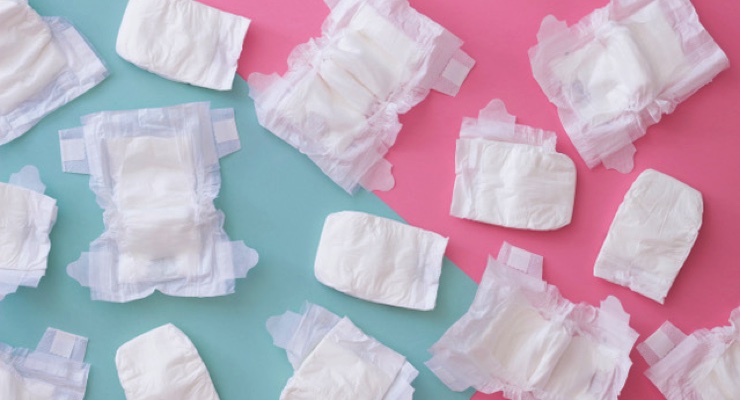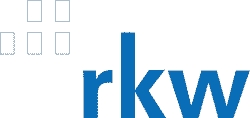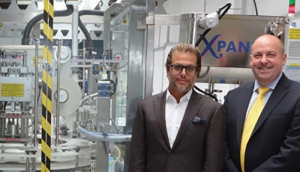07.02.20
European manufacturers of diapers, adult incontinence, and feminine hygiene products are committing to a new program to give consumers further assurances about the safety of their products.
EDANA, the European Nonwovens Industry Association, who represent makers of most of these products placed on the European market, launched the Stewardship Programme for Absorbent Hygiene Products.
Under the programme, open to all producers, participants commit to go beyond existing product legislation to give consumers maximum confidence in the safe use of these products.
Initial signatories include brand owners Kimberly-Clark, Procter & Gamble, Ontex, Johnson & Johnson, Paul Hartmann, Abena and Essity alongside key private label manufacturers Corman and Drylock, suppliers to many of Europe’s largest retailers.
Developed in consultation with policymakers, subject experts and reviewed by scientists, the program introduces an industry-wide list of trace substances (such as PAHs, PCBs, dioxins, furans, phthalates and formaldehyde) and guidance values that adhering companies will commit to not exceed using harmonized, consumer relevant test methods.
With the publishing of product composition and a commitment to enhance consumer understanding, the program also serves to reinforce transparency, enabling consumers to make informed choices.
The safety of these products, including the 21 billion diapers sold annually in the EU, has been demonstrated through recent tests by the relevant Competent Authorities in France, Belgium, Sweden and Switzerland, amongst others.
“Absorbent hygiene products help millions of Europeans live active and healthy lives, from early childhood to old age. The Stewardship Programme is a sign of EDANA’s members’ commitment to ensuring that consumers continue to have full confidence in the safety of our products,” says Pierre Wiertz, general manager of EDANA.
Longstanding testing procedures for these impurities, which are found only at trace levels and do not represent health risks, are carried out at various steps throughout the production chain. The harmonized consumer-relevant testing methods this program introduces makes it easier to reproduce these processes and ensure consistent quality.
“Companies are making a commitment that goes beyond what they are required to do under existing legislation. The tests for substances, which are present at only trace levels and pose no threat to human health, are based on the best available science and reflect real-life use,” Wiertz says.
The EDANA website features further detail on the criteria for determining the relevant trace substances, their agreed thresholds, and the newly standardized testing methodologies. Participating companies are also listed.
The Stewardship Programme is part of an ongoing process by EDANA’s members to ensure the maximum level of safety and understanding of our products, including longstanding industry-led research and dialogue across the supply chain.
This program is in line with the European Commission’s advocacy of product safety codes of good practice in the General Product Safety Directive and will deliver on the EDANA Sustainability Vision for the nonwovens industry. On June 30 EDANA were invited by the European Commission to present the program to the CARACAL, a grouping of chemical experts representing Member State competent authorities.
EDANA, the European Nonwovens Industry Association, who represent makers of most of these products placed on the European market, launched the Stewardship Programme for Absorbent Hygiene Products.
Under the programme, open to all producers, participants commit to go beyond existing product legislation to give consumers maximum confidence in the safe use of these products.
Initial signatories include brand owners Kimberly-Clark, Procter & Gamble, Ontex, Johnson & Johnson, Paul Hartmann, Abena and Essity alongside key private label manufacturers Corman and Drylock, suppliers to many of Europe’s largest retailers.
Developed in consultation with policymakers, subject experts and reviewed by scientists, the program introduces an industry-wide list of trace substances (such as PAHs, PCBs, dioxins, furans, phthalates and formaldehyde) and guidance values that adhering companies will commit to not exceed using harmonized, consumer relevant test methods.
With the publishing of product composition and a commitment to enhance consumer understanding, the program also serves to reinforce transparency, enabling consumers to make informed choices.
The safety of these products, including the 21 billion diapers sold annually in the EU, has been demonstrated through recent tests by the relevant Competent Authorities in France, Belgium, Sweden and Switzerland, amongst others.
“Absorbent hygiene products help millions of Europeans live active and healthy lives, from early childhood to old age. The Stewardship Programme is a sign of EDANA’s members’ commitment to ensuring that consumers continue to have full confidence in the safety of our products,” says Pierre Wiertz, general manager of EDANA.
Longstanding testing procedures for these impurities, which are found only at trace levels and do not represent health risks, are carried out at various steps throughout the production chain. The harmonized consumer-relevant testing methods this program introduces makes it easier to reproduce these processes and ensure consistent quality.
“Companies are making a commitment that goes beyond what they are required to do under existing legislation. The tests for substances, which are present at only trace levels and pose no threat to human health, are based on the best available science and reflect real-life use,” Wiertz says.
The EDANA website features further detail on the criteria for determining the relevant trace substances, their agreed thresholds, and the newly standardized testing methodologies. Participating companies are also listed.
The Stewardship Programme is part of an ongoing process by EDANA’s members to ensure the maximum level of safety and understanding of our products, including longstanding industry-led research and dialogue across the supply chain.
This program is in line with the European Commission’s advocacy of product safety codes of good practice in the General Product Safety Directive and will deliver on the EDANA Sustainability Vision for the nonwovens industry. On June 30 EDANA were invited by the European Commission to present the program to the CARACAL, a grouping of chemical experts representing Member State competent authorities.

















